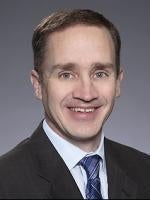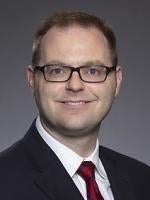In two decisions recently designated as “precedential,” the PTAB rejected two theories raised by petitioners for why the service of a complaint should not trigger Section 315(b)’s one-year time bar for filing a petition. In the first case, the Board rejected the petitioner’s argument that a complaint must be served by a plaintiff that has standing to assert the patent. In the second case, the Board rejected the petitioner’s argument that the service of the complaint must effect personal jurisdiction. Both case results stem from the Federal Circuit’s decision in Click-to-Call Technologies, L.P. v. Ingenio, Inc., where the court held that the plain and unambiguous meaning of Section 315(b)’s time bar merely requires the service of a complaint allege patent infringement, and thus leaves little room for finding exceptions to the time bar’s application.
In GoPro, Inc. v. 360Heros, the facts are unusual.[1] GoPro filed a complaint in the Northern District of California pleading trademark and copyright infringement, unfair competition, and sought a declaratory judgment that it did not infringe the patent at issue. 360Heros responded with a counterclaim alleging patent infringement. However, 360Heros’ inventor and CEO did not assign the patent to the company until after the counterclaim was filed, which means that 360Heros did not have standing to assert the patent when it served its counterclaim. Likely anticipating that the patent-related claims would be dismissed due to lack of standing, 360Heros filed a separate patent infringement lawsuit in the District of Delaware.
GoPro later filed a petition for inter partes review more than one year after 360Heros served its defective counterclaim of patent infringement, but less than one year after 360Heros served the complaint alleging patent infringement in its Delaware action. The Board initially granted institution of the petition despite this timeline, and relied on the Board’s earlier decisions that found a plaintiff’s lack of standing meant that the service of the complaint was not by the patent owner and did not trigger the time bar. These earlier decisions were based in part on the fact that Section 315(b) is entitled “Patent Owner’s Action.”
The PTAB’s Precedential Opinion Panel granted rehearing and POP review, and reversed the Board’s decision. The Precedential Opinion Panel’s decision relies principally on the Federal Circuit’s Click-to-Call decision for the proposition that the statutory language is not ambiguous and that there are no exceptions to its plain and unambiguous meaning. Finding that there is no ambiguity in the statutory language, the Precedential Opinion Panel found that it cannot consider the fact that the title of the statute is “Patent Owner’s Action” under controlling law that governs statutory construction. However, the Precedential Opinion Panel left open the possibility of equitable tolling if a complaint is filed in bad faith by a plaintiff that lacks standing to assert a patent.
After issuing the GoPro decision, the Precedential Opinion Panel designated the Board’s decision in Infiltrator Water Technologies, LLC v. Presby Patent Trust.[2] In that case, the petitioner did not contest that it was served with a complaint alleging infringement of the patent at issue. Instead, the petitioner argued that the time bar was not triggered by the complaint because the complaint was subsequently dismissed without prejudice due to the lack of personal jurisdiction over the petitioner. Applying the Federal Circuit’s Click-to-Call opinion, the Board concluded that the petition was time barred. The Board rejected the petitioner’s arguments that were based on Federal Rule of Civil Procedure 4(k), which is entitled “Territorial Limits of Effective Service.” The Board explained that “the text of Rule 4(k) does not purport to establish legal means for accomplishing service; rather, the text of Rule 4(k) concerns when ‘serving a summons or filing a waiver of service establishes personal jurisdiction over a defendant.”[3]
These decisions reinforce the need to now file any IPR petitions within a year of service of a complaint in a first action, regardless of defects (including lack of ownership) or actions by either party following that event. Whether patent owners will utilize these decisions for further gamesmanship remains to be seen.
[1] IPR2018-01754 (PTAB Aug. 23, 2019)
[2] IPR2018-00224 (PTAB Oct. 1, 2018)
[3] Id. at 6.




 />i
/>i

